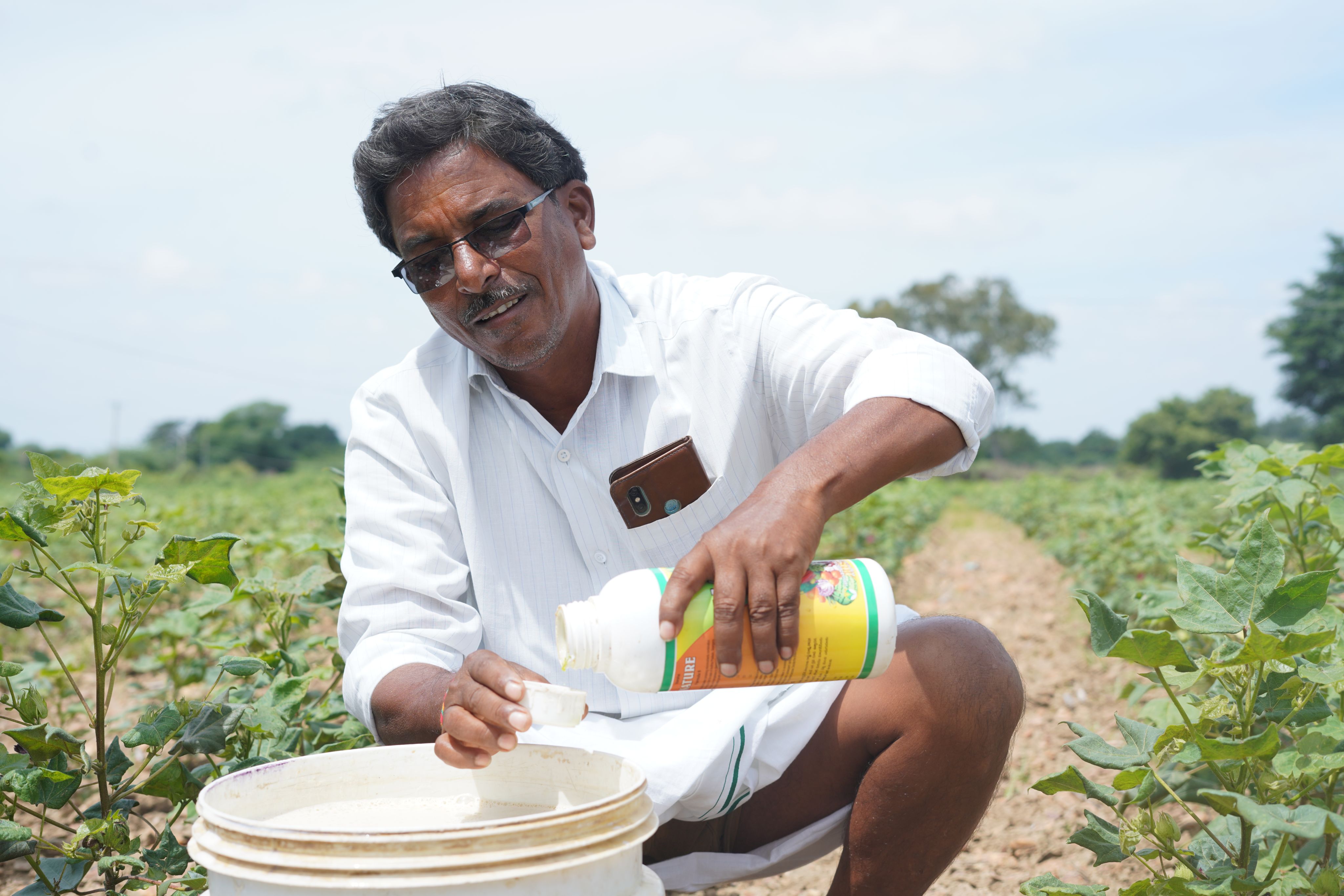The MACS Way To Making Farming Worthwhile
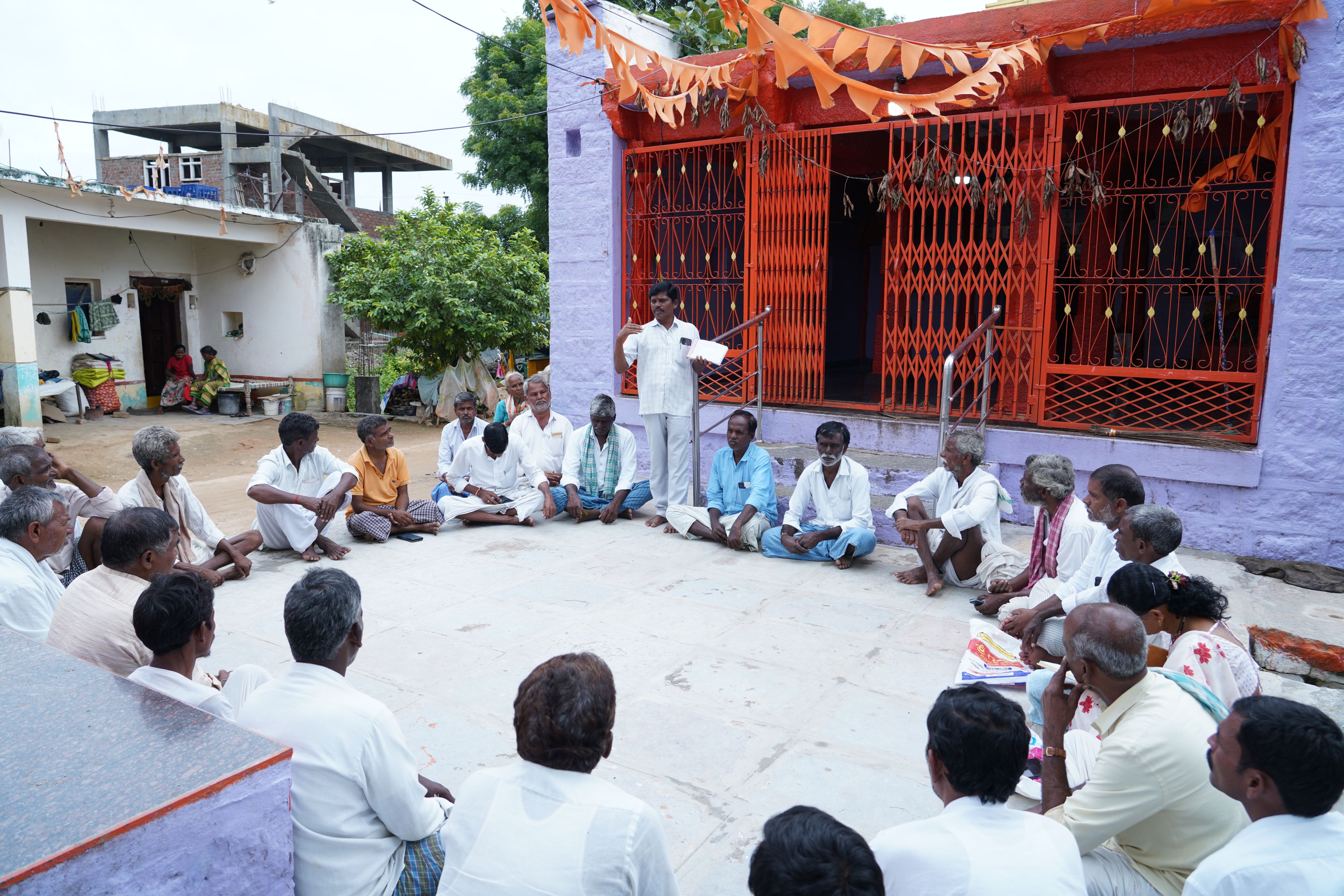
“Kheti karna jua khelne ke barabar hai. Kisi cheez ki guarantee nahi. Paani ki nahi, mausam ki nahi, rate ki nahi. Loss zyaada hai, aur kabhi kabhi fayda (Farming is a gamble. There are no guarantees. No guarantee of water, of rate. There is more loss, and very rarely a profit),” says Laxmappa Kanikeri, 48, who grows cotton on his 7 acre farm in Bhaironkonda village, Narayanpet.
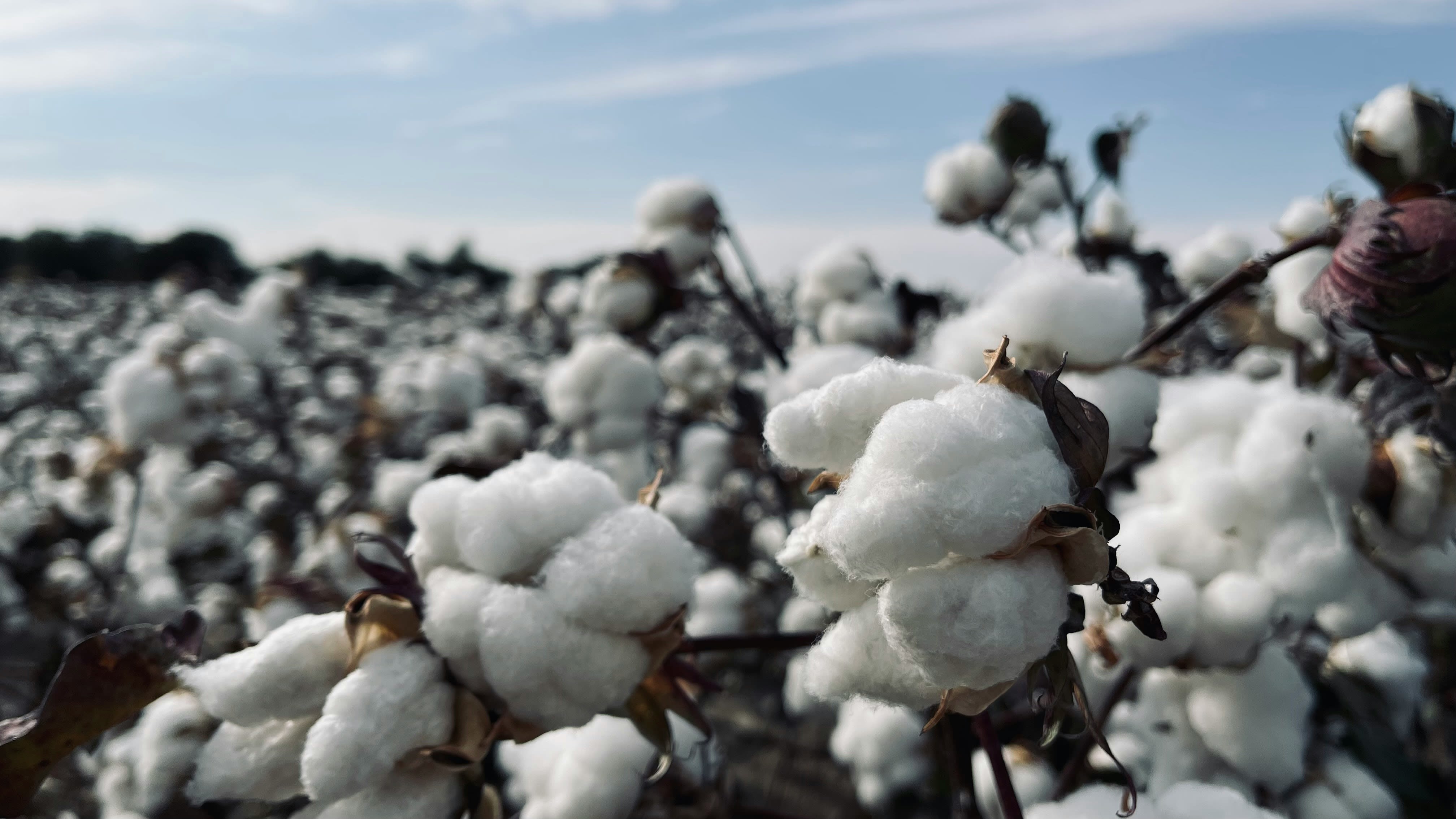
Photo by Sze Yin Chan on Unsplash
Photo by Sze Yin Chan on Unsplash
Located in a rain-fed area with limited water availability, residents say farming in Bhaironkonda has become particularly precarious in the last few years, owing to changing climatic conditions, and increasing costs of agriculture.
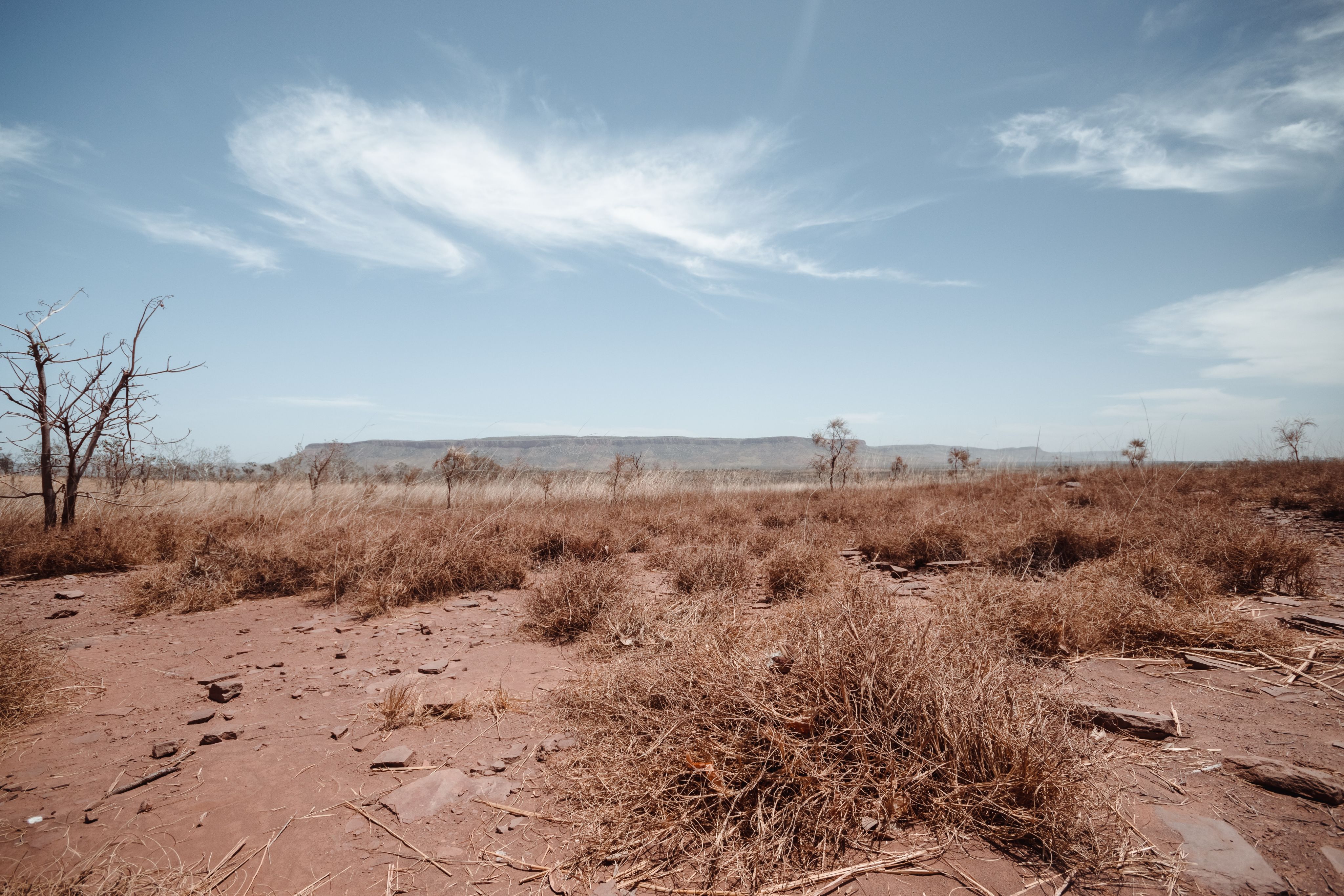
Photo by Fiona Smallwood on Unsplash
Photo by Fiona Smallwood on Unsplash
“Earlier, it didn’t rain properly for 15 years, so we experienced losses. The last two years, because there was too much rain, we again experienced losses. This year, because it has not rained yet, we are anticipating losses,” says Venkat Reddy, another farmer from the village.
Until 2019, villagers were struggling to make ends meet, facing menacing pests, diseases, and degrading soil. While a majority were migrating to cities like Mumbai and Mangalore in search of work, those who stayed back were witnessing dwindling yields.
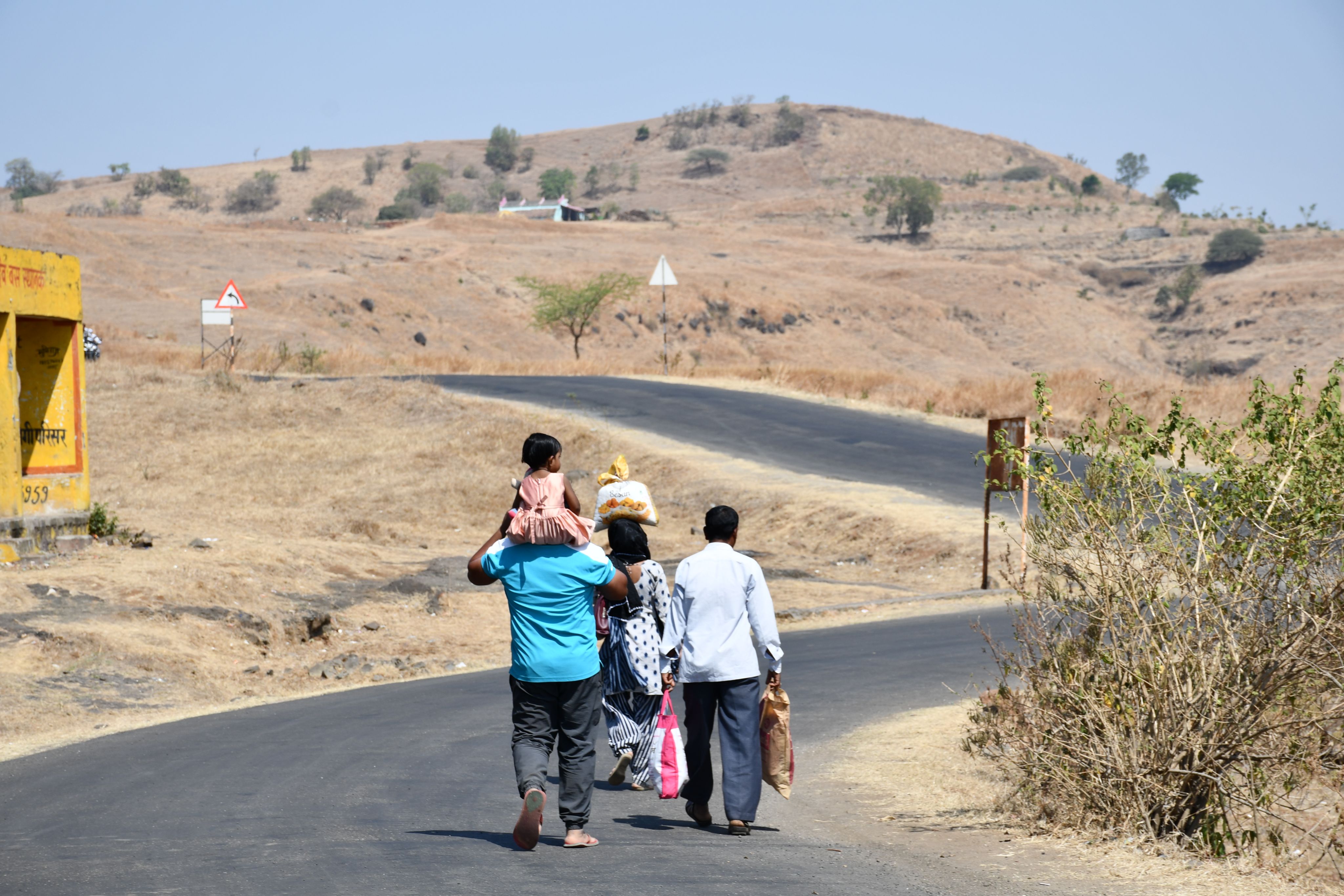
With limited earnings and high input costs, most were forced to take out loans from unorganised moneylenders who charged exorbitant interest rates to meet costs for the next agricultural season. “Most of us were heavily in debt. I, myself, took out 2 loans of Rs 90,000 and Rs 80,000, to be able to feed my family,” says Kankeri.
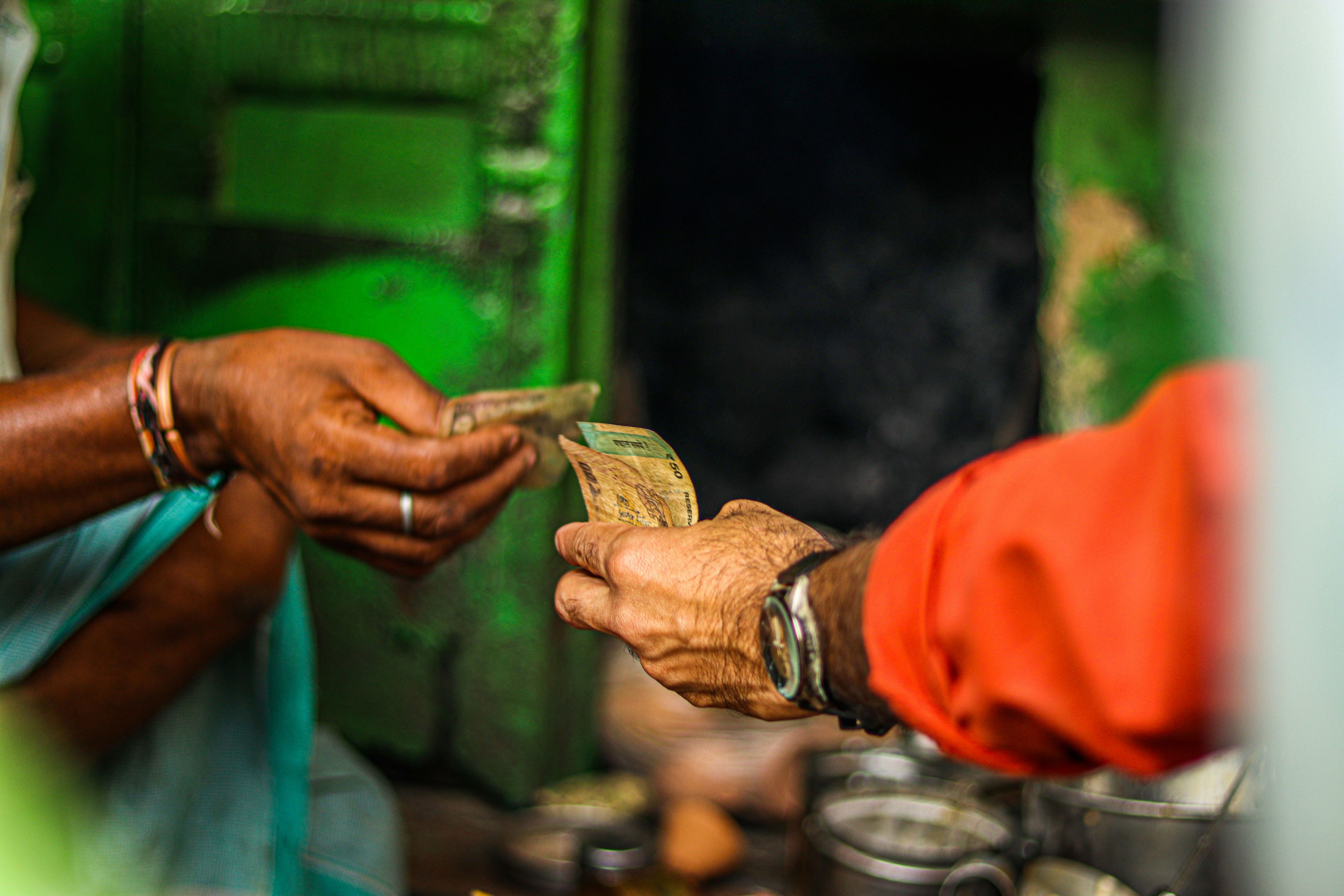
Photo by Swastik Arora on Unsplash
Photo by Swastik Arora on Unsplash
Many also found it extremely difficult to get a good price for their produce. “When I went to sell rice last year in the mandi, I had to stand 3 days in a line, pay Rs 3,000 for the tractor and labour costs,” Reddy adds.
Distressed, and desperate for solutions, some farmers started participating in Farmer Field Schools (FFS) organised by WOTR in 2019, as part of Axis Bank Foundation’s Sustainable Livelihoods Programme.
The field schools that comprised 20 farmers in a group, allowed farmers to meet each other on a regular basis, and learn from each other.
“We would earlier be concerned with our own individual problems. In the sangam (Farmer Field School), we learnt that a lot of issues, whether it be market rate, or pests, or corrupt agents, were issues that were affecting us all ,” Kankere says.
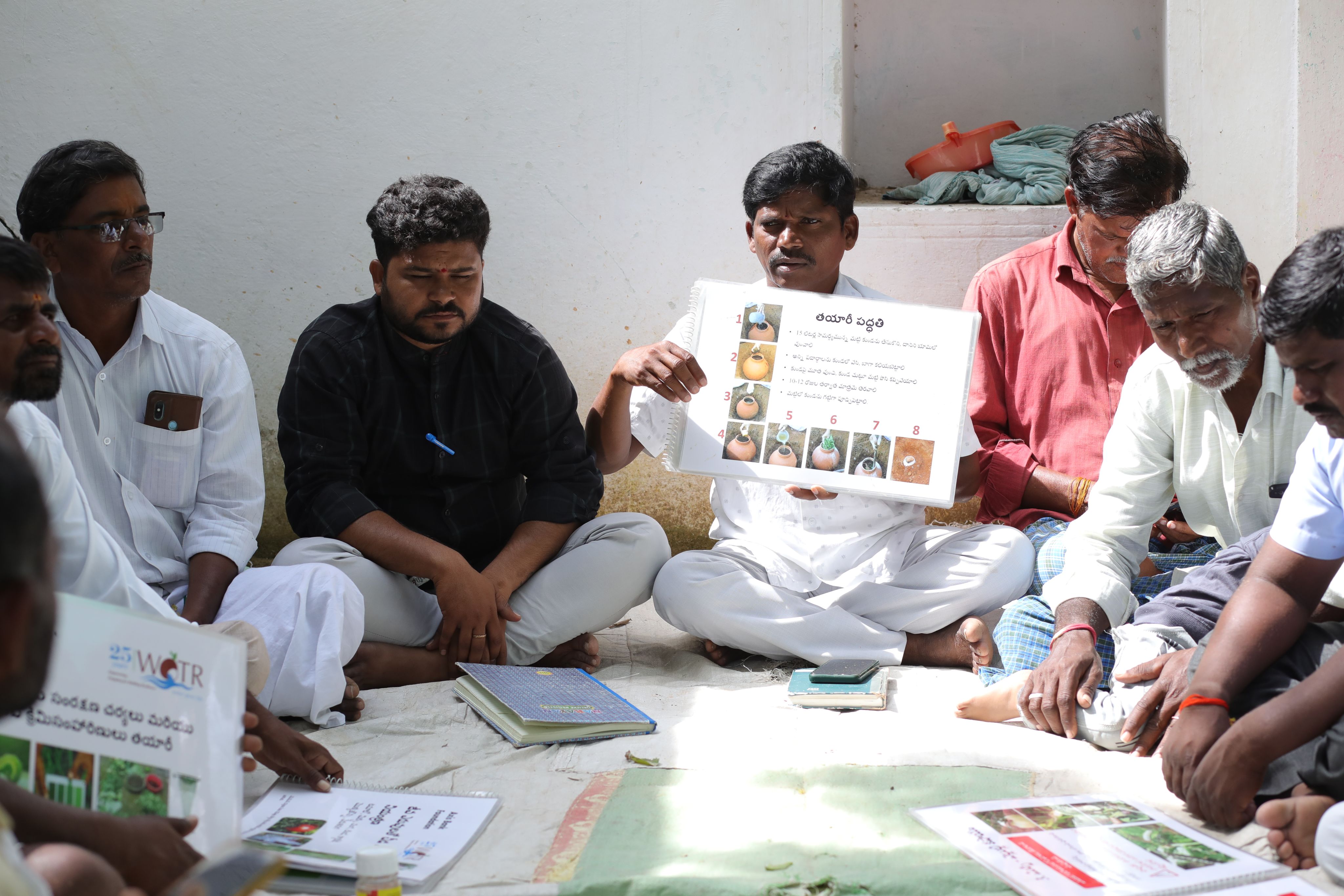
The village presently has 15 farmer groups that meet once every fortnight. Through the groups, the farmers discuss agricultural issues, procure seeds and fertilisers, and rent agricultural equipment at discounted prices.
The many advantages of banding together, eventually led them to form ‘Raghavendra Rayatu Paraspara Sahakara Sangam Limited’ in 2023- a Mutually Aided Cooperative Society (MACS). Through the MACS, they want to facilitate faster and cheaper supply of materials required for input, and get access to marketing support for better profits on the yield.
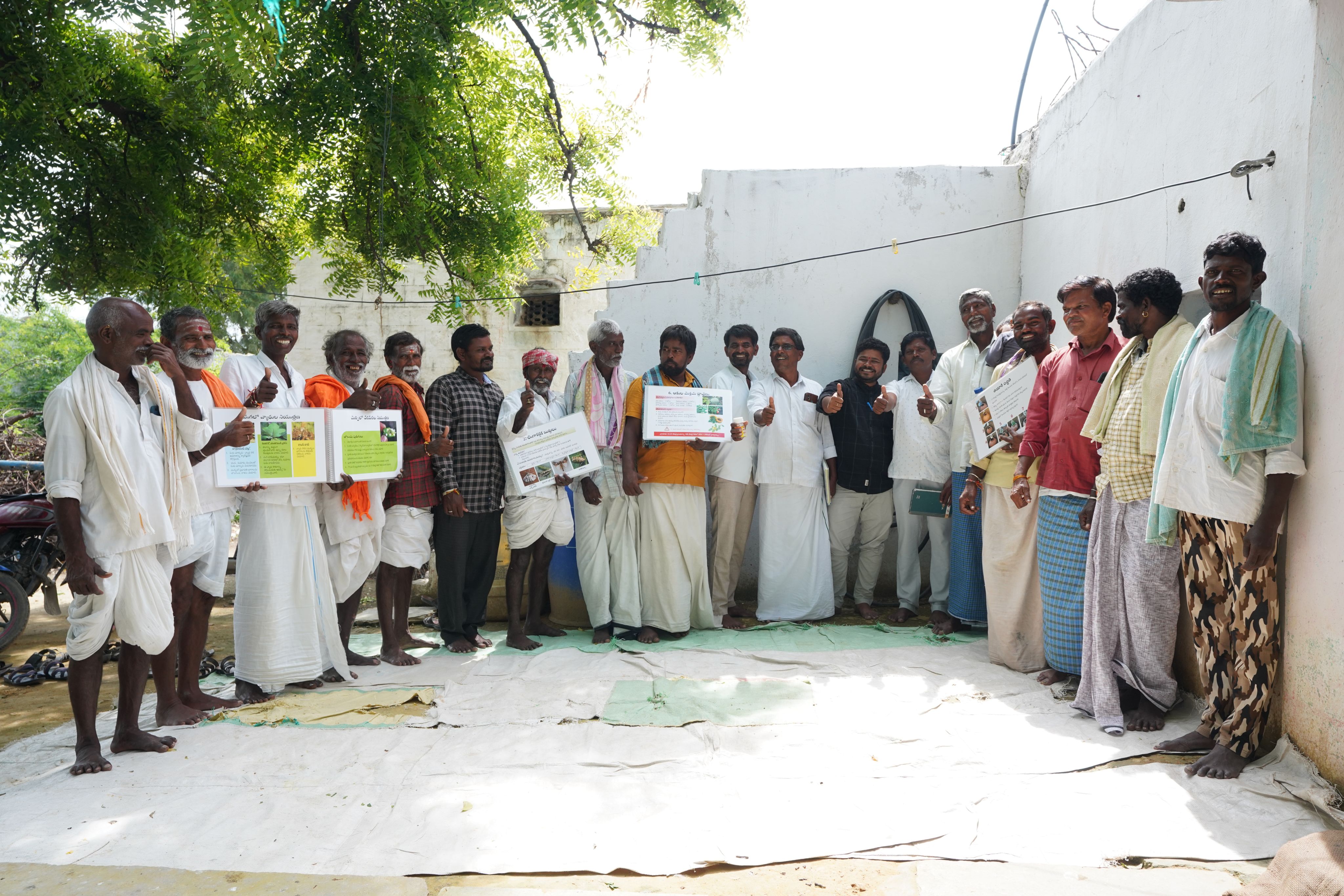
The farmers have already started witnessing the power of getting together.
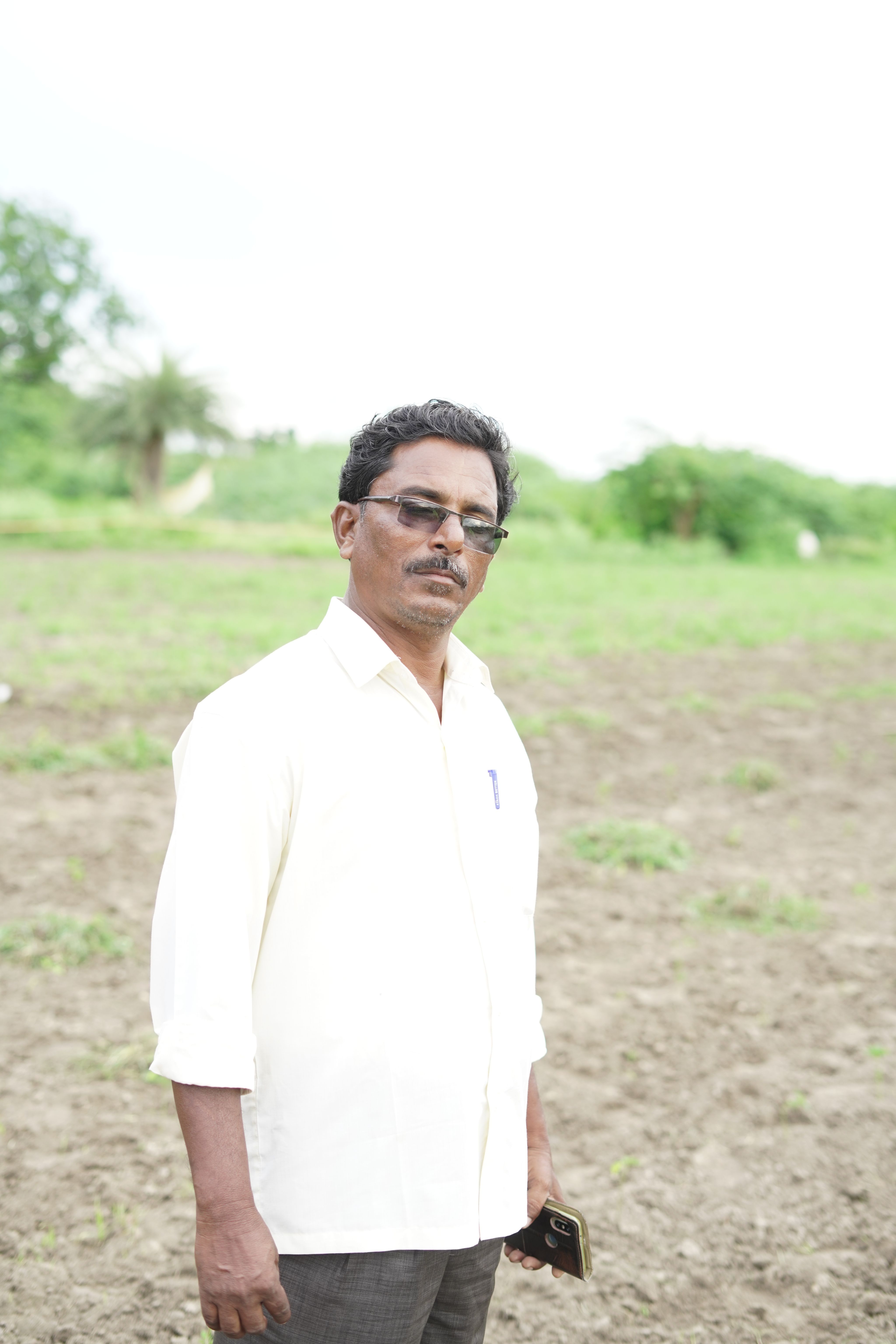
Venkata Reddy-a member of the MACS
Venkata Reddy-a member of the MACS
“Earlier, I would have to carry the produce on my head to sell it in the nearby market. Now, the truck comes inside the village. We are also in a better position to negotiate rates with agents. Because of the MACS, we don’t need to go to the money lender for loans. We help each other out, and even save a small amount every month,” Reddy adds.
They are also able to procure seeds, fertilisers and equipment at discounted rates. “You just need to drop an SMS to the company, and they come running to us,” Kankere says.
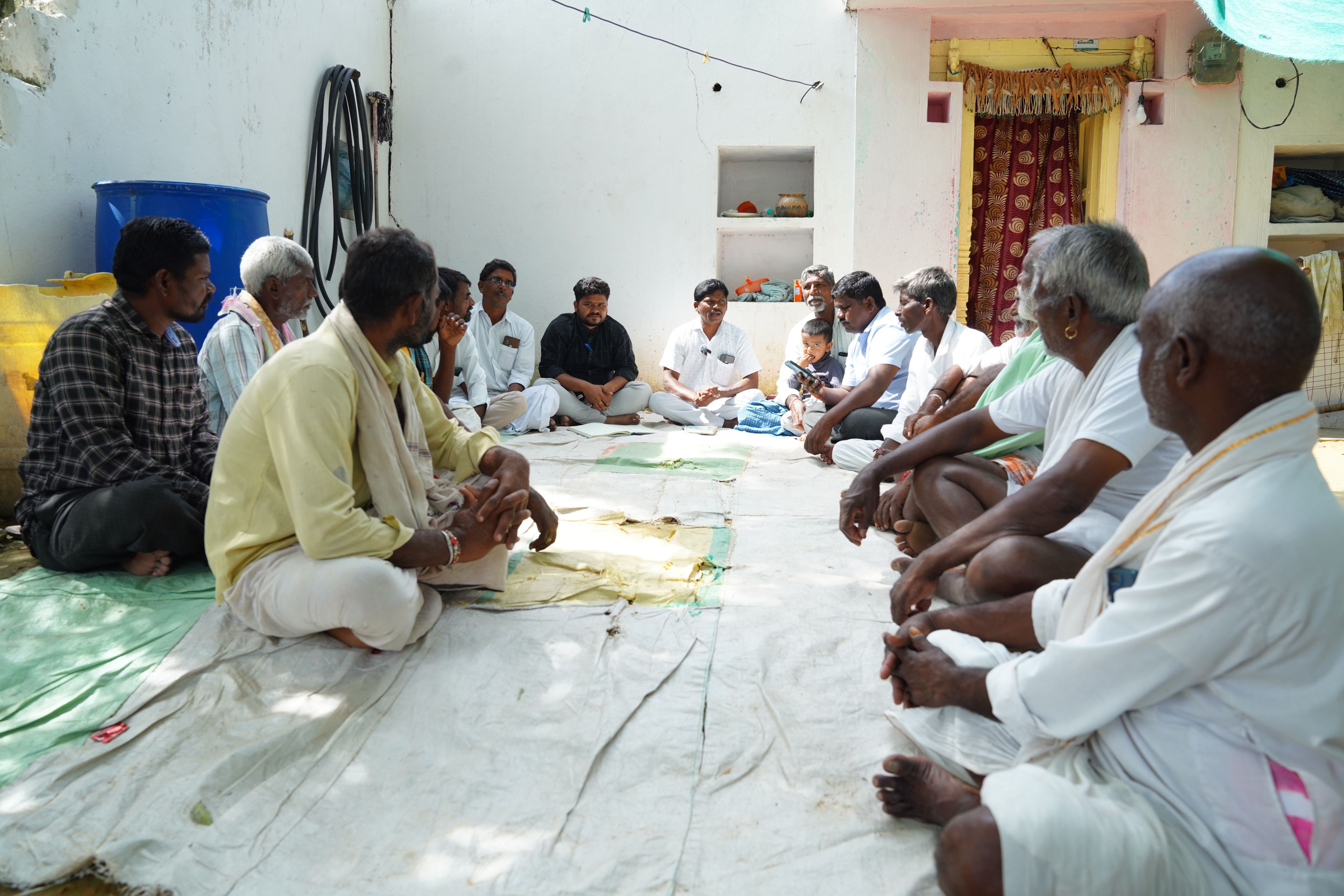
They now want to explore bigger markets, and identify non-local buyers to sell their produce. “The idea is to connect with the big retail conglomerates, like Reliance, and see if we can deal directly with them. We are also exploring bigger markets in Mahabubnagar,” Reddy says.
“Unity has power. This is what the last few years with the FFS and now MACS have taught us,” he adds.
To invest with WOTR for its initiatives to mobilise communities and develop sustainable agriculture practices, write to Madhavi Kadrekar at info@wotr.org.
